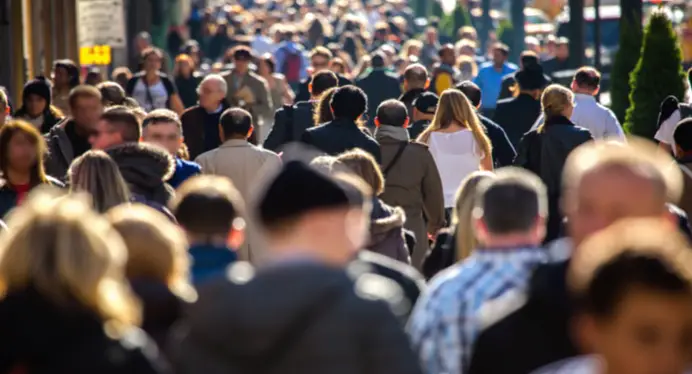A lot has changed in Latin America in the 21st century, a period marked by a pendulum cycle of ideologies: first, the left governed, then the right, and now the left again. The first progressive wave is very different from the second due to the political, social, and economic conditions of the region. However, there is only one similarity: some of its leaders are still in power, and have secured the presidency, while others have returned through the ballot box.
In these cases, it is possible to analyze that there has not been a change of elites, as Wright Mills or Gaetano Mosca have written, who mention that part of preserving power has to do with the renewal of cadres either in power or in the parties. There are examples of this in various latitudes, such as Cristina Fernández in the vice presidency of Argentina, Luiz Inácio da Silva as president of Brazil, Evo Morales as a candidate for the next elections, Daniel Ortega in power since 2006 in Nicaragua or Nicolás Maduro in Venezuela.
Different countries have distinct contexts, but all of them have in common the fact that their leaders have remained in force in politics, preventing the renewal of political cadres. Argentina’s Peronism was concentrated in the Néstor-Cristina couple, which has been detrimental for the ruling party, since with the October elections its standard-bearer Sergio Massa has faced difficulties in consolidating his image. Even since 2022, the possibility of Cristina Fernández competing for the presidency was analyzed, but in March 2023, she declared that she would not do so because she was disqualified by a court ruling.
In Brazil, Lula da Silva defeated President Jair Bolsonaro. His image awoke excitement among citizens, but now the President faces other problems preventing him from repeating the successes of his first two terms in office (2003-2010). The war in Ukraine, the polarization in the country, and a Congress with an opposition majority are the president’s challenges. His rapprochement with Russia and the lack of condemnation of authoritarian leftists have earned him criticism, together with the country’s fiscal deficit and the drop in investment.
Meanwhile, Bolivia is a particular case in the region. After the 2019 protests that culminated in the resignation of Evo Morales and the interim of Janine Áñez, the Movimiento Al Socialismo Party regained the presidency with Luis Arce Catacora. Nevertheless, the president and the former president have clashed over the development model, cocaine production, and the increase in crime. Criticism between the two has reached the point that Morales has already been endorsed by his party to run for the presidency and Arce has been expelled during the Tenth Congress of Movimiento Al Socialismo.
This is one of the most interesting scenarios since the charismatic leadership of Evo Morales has imposed itself over the traditional or legal leadership of Luis Arce Catacora, according to Max Weber’s typologies. Yet, this is also assimilated to the Mexican Martín Luis Guzmán’s novel La sombra del caudillo, in which it is portrayed that there are constitutional presidents but political power resides in the Maximum Chief of the Revolution. The same is happening in Bolivia: the figure of Evo Morales has been superimposed on that of the current president, despite belonging to the same party, and there is a dispute that clamors for the return of the former president to the Palacio Quemado.
On the other hand, Nicaragua and Venezuela have become modern autocracies, both led by authoritarian leaders who have suppressed political freedoms and weakened elections and institutionality. The two nations face political, economic, and social crises. For example, Daniel Ortega fought against the Somoza dictatorship to build a republic, but now entrenched in power since 2006, the country has become hermetic and has gone backward in time. Augusto Cesar Sandino’s ideal of a free and sovereign country has been dissolved by the Ortega government.
Likewise, Venezuela became an autocracy since Hugo Chavez reformed the Magna Carta, the powers and the State. The transfer of power to Nicolás Maduro represented the continuity of Chavism, but unlike the first government, the country no longer enjoys the oil boom and the regime has become hostile towards opponents. Venezuela is one of those paradoxical cases where characters promised a better future for the sake of democracy, but the latter has been suffocated.
The criticism of these cases has nothing to do with how they exercise power, but rather that the leaders described have personified political power, preventing new faces from revitalizing party structures. The aforementioned leaders had successes and mistakes in their governments, but the world has changed and so has society. Following strategies that no longer correspond to the times may generate greater costs than benefits, some other needs and challenges can only be met with the arrival of new profiles.
Still, the different cases addressed should make us think about something: What will happen when these leaders are no longer in place? Speculating is useless, but Political Science and History allow us to make futurology. In the case of authoritarian leaders, their regimes do not manage to maintain themselves in the absence of the leader. Perhaps some of them will initiate transitions towards other models. While the elected leaders who govern today may become pillars or political guides, some may even have their own ideological current, such as Lulism or Kirchnerism.
*Translated from Spanish by Micaela Machado Rodrigues













